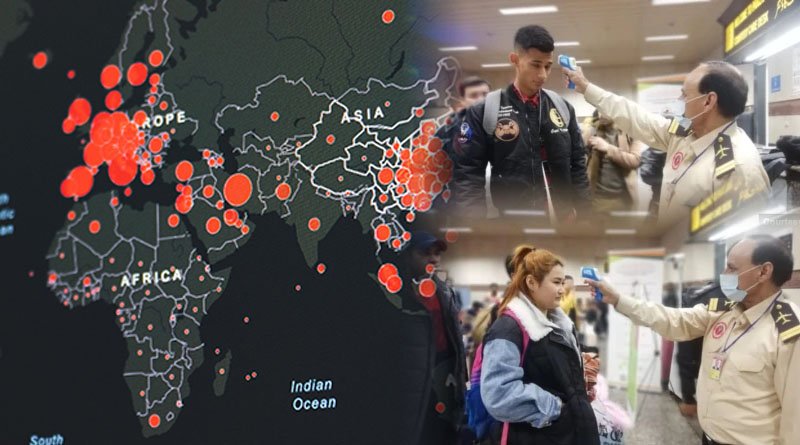It was reported that all airports in the country had conducted rapid antigen tests and polymerase chain reaction tests on inbound passengers in accordance with current policy.

According to reports, a meeting chaired by Chairman National Disaster Management Authority (NDMA) Lieutenant General Inam Haider Malik on Monday reviewed the COVID-19 situation and airport surveillance mechanisms in the aftermath of the threat posed by the new BF.7 Omicron variant.
It was reported at today’s meeting that all airports in the country had conducted rapid antigen tests (RATs) and polymerase chain reaction (PCR) tests on inbound passengers in accordance with current policy.
Last week, health officials announced that surveillance mechanisms had been installed at all country entry points to monitor incoming passengers in response to the threat posed by the new TSA. 7 Omicron variant of COVID-19.
According to health officials, instructions have been issued to the relevant authorities to ensure that passengers entering Pakistan pass through thermal scanners installed at airports throughout the country. However, the official stated that the country’s health system was “fully prepared to deal with any sub-variant” of the Omicron variant.
The official went on to say that medical staff in intensive care units (ICUs) across the country were also ready to handle any situation. Officials from the National Institute of Health told the meeting that pedestrian vaccination and screening tests are carried out on a daily basis at the Torkham border.
The Civil Aviation Authority informed the meeting that an efficient system with a proper management team is fully operational at airports and that related logistic arrangements had been made to deal with any COVID-19 sub-variant.
The Chairman of the National Disaster Management Agency (NDMA) expressed confidence in the country’s anti-COVID strategies and national preparedness regime.
He did, however, direct the NIH to issue precautionary advisories to educational institutions, social gatherings, and communities, as well as hold weekly media briefings to educate the public and stakeholders. He emphasised the need for continuous monitoring of the global spread and behaviour of the sub-variant and the measures undertaken by other countries to counter the strain.